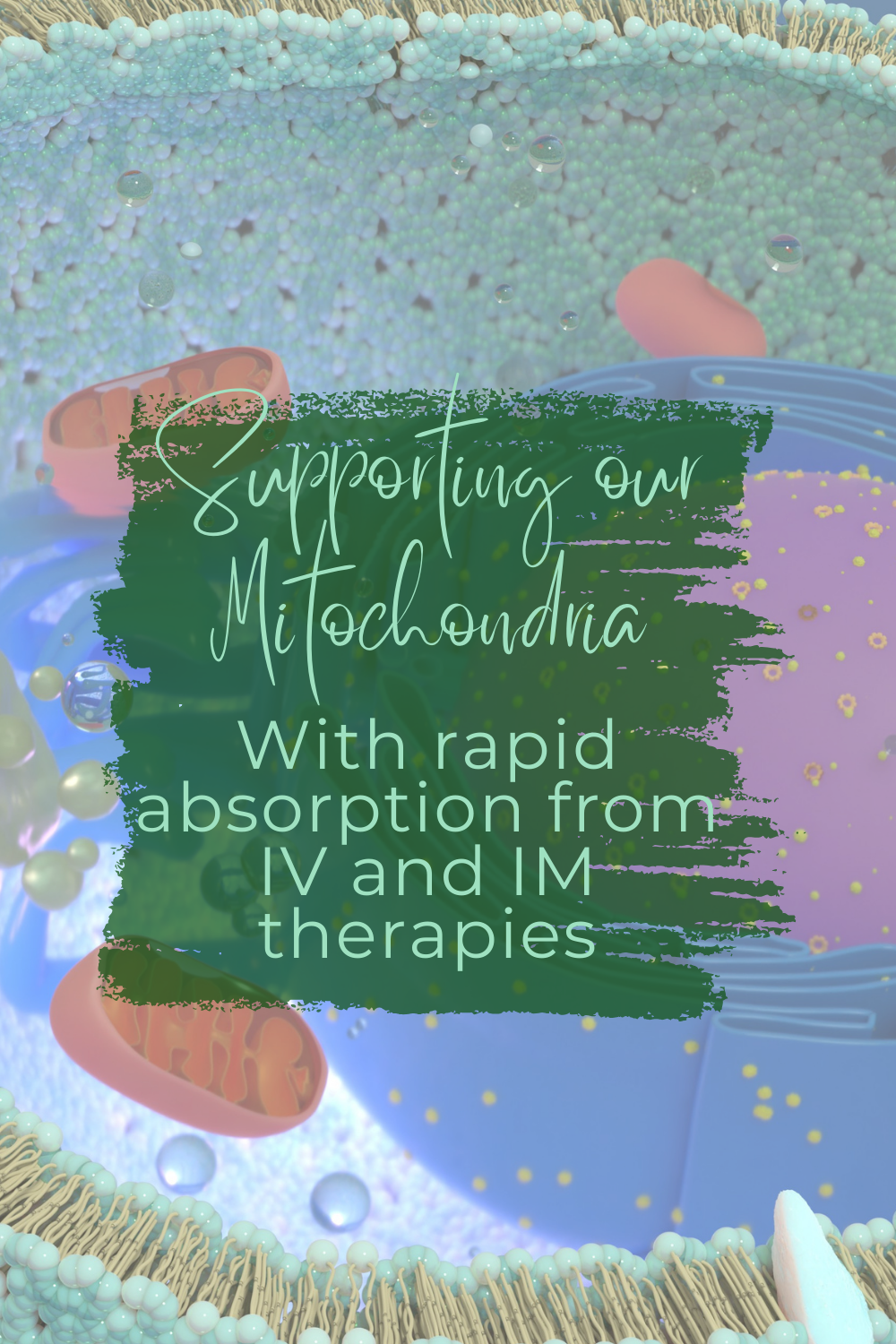IV & IM Mitochondrial Support
First off, what is mitochondrial dysfunction?
Mitochondrial dysfunction refers to problems with the normal activity of the mitochondria, the cell’s energy-producing structures. When mitochondria aren’t working properly, they can’t produce enough energy for the cell, which can lead to a variety of symptoms and health conditions. This dysfunction can be due to genetic mutations, environmental factors, or a combination of both. It’s often linked to several chronic diseases, including neurodegenerative disorders, metabolic syndrome, and some forms of heart disease. Addressing the root cause is crucial for treatment and management.
People choose intravenous (IV) or intramuscular/subcutaneous (IM/SQ) nutrient therapy for various reasons:
Rapid Absorption: IV/IM/SQ administration bypasses the digestive system, allowing for direct absorption into the bloodstream. This can be beneficial when rapid or high-dose nutrient delivery is desired.
High Doses: Some therapies, like high-dose vitamin C, can only be achieved through IV administration as oral doses might cause gastrointestinal upset.
Digestive Issues: People with certain gastrointestinal disorders that affect nutrient absorption may benefit from direct IV/IM/SQ nutrient delivery.
Boost Energy & Immune Support: Some individuals report feeling more energetic or having improved immune function after receiving IV/IM/SQ nutrient treatments.
Adjuvant Treatment: Some practitioners use IV/IM/SQ nutrients as part of a broader treatment plan for various conditions, including chronic fatigue syndrome, migraines, and fibromyalgia.
Mitochondria are often referred to as the “powerhouses” of the cell because they produce ATP, a molecule that provides energy for many cellular functions. Certain nutrients, when supplied adequately, can support mitochondrial health and function. Examples include:
CoQ10 (Coenzyme Q10): Vital for energy production in mitochondria. It also acts as an antioxidant, protecting mitochondria from oxidative damage.
B-Vitamins: Essential cofactors for enzymes involved in the Krebs cycle, a series of chemical reactions in mitochondria that produce ATP.
Magnesium: Plays a crucial role in the synthesis of ATP in mitochondria.
Antioxidants (e.g., Vitamin C, glutathione): Protect mitochondria from oxidative stress, which can damage their DNA and proteins.
By providing these and other nutrients directly into the bloodstream via IV/IM/SQ administration, it is thought to better support mitochondrial function, especially if there are deficiencies or higher demands.
If you have been dealing with fatigue, low energy, poor sleep, or other chronic health issues and you want to explore if it could be related to mitochondrial dysfunction, schedule a consultation with our Nurse Practitioner, Christina to talk options for infusions or injectables!

